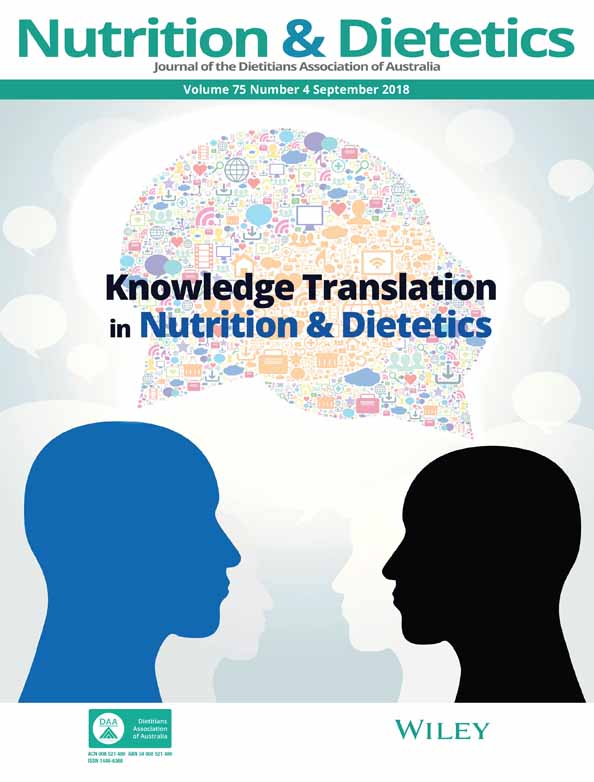A Consensus Model: Shifting assessment practices in dietetics tertiary education
Abstract
Aim
The aim of this research was to evaluate a Consensus Model for competency-based assessment.
Methods
An evaluative case study was used to allow a holistic examination of a constructivist-interpretivist programmatic model of assessment. Using a modified Delphi process, the competence of all 29 students enrolled in their final year of a Master of Nutrition and Dietetics course was assessed by a panel (with expertise in competency-based assessment; industry and academic representation) from a course e-portfolio (that included the judgements of student performance made by worksite educators) and a panel interview. Data were triangulated with assessments from a capstone internship. Qualitative descriptive studies with worksite educators (focus groups n = 4, n = 5, n = 8) and students (personal interviews n = 29) explored stakeholder experiences analysed using thematic analysis.
Results
Panel consensus was achieved for all cases by the third-round and corroborated by internship outcomes. For 34% of students this differed to the ‘interpretations’ of their performance made by their worksite educator/s. Emerging qualitative themes from stakeholder data found the model: (i) supported sustainable assessment practices; (ii) shifted the power relationship between students and worksite educators and (iii) provided a fair method to assess competence. To maximise benefits, more refinement, resources and training are required.
Conclusions
This research questions competency-based assessment practices based on discrete placement units and supports a constructivist–interpretivist programmatic approach where evidence across a whole course of study is considered by a panel of assessors.




